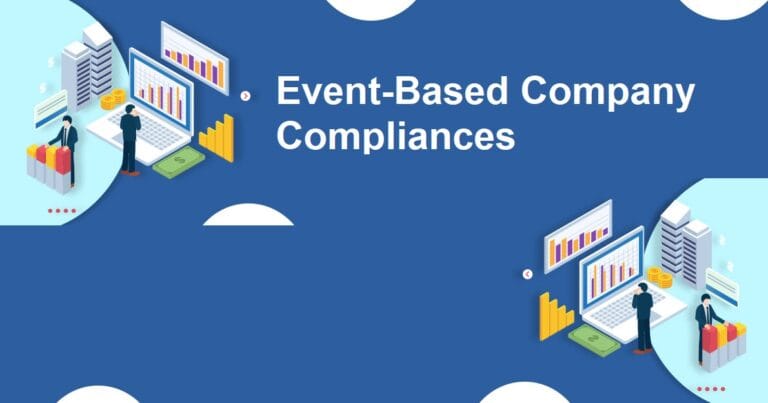Compliance for LLPs (Limited Liability Partnerships) in India is crucial to ensure adherence to legal and regulatory requirements mandated by the Ministry of Corporate Affairs (MCA) and other relevant authorities. These compliances help maintain the legal status of the entity, protect stakeholders’ interests, and avoid penalties. Here’s a detailed guide on the key compliances for LLPs in India:
LLP Compliances
1. Annual Filings
- Annual Return (Form 11): LLPs must file an annual return containing details of partners and designated partners by May 30th every year.
- Statement of Accounts and Solvency (Form 8): File a statement of accounts and solvency by October 30th each year.
2. Board Meetings and Minutes
- Management Meetings: Although not mandatory, regular management meetings help in decision making and maintaining operational clarity.
3. Statutory Registers and Records
- Register of Partners: Maintain a register of partners and changes therein.
- LLP Agreement: Ensure the LLP agreement is updated with any changes in partners or designated partners.
4. Income Tax and GST
- Income Tax Returns: File income tax returns annually by September 30th.
- Goods and Services Tax (GST): File monthly/quarterly GST returns and an annual return by December 31st, if applicable.
5. Other Compliances
- Audit Requirements: LLPs with turnover exceeding specified limits or where contribution exceeds specified thresholds must undergo a statutory audit.
- Changes in LLP Agreement: File Form 3 with the Registrar for any changes in LLP agreement.
6. Conversion to Company
- LLPs can convert to private or public companies under specified conditions and procedures outlined in the Companies Act, 2013.
Best Practices for Compliances
- Timely Filings: Adhere to all statutory timelines for filing returns and documents with the MCA and other authorities.
- Regular Monitoring: Maintain a compliance calendar and regularly monitor changes in regulations affecting the business.
- Professional Assistance: Engage qualified professionals such as Company Secretaries, Chartered Accountants, and Lawyers to ensure accurate compliance.
- Internal Controls: Implement robust internal controls to manage and monitor compliance requirements effectively.
- Audit and Review: Conduct periodic audits and reviews of compliance processes to identify gaps and mitigate risks.
Compliance with statutory and regulatory requirements is essential for the smooth functioning and legal standing of LLPs in India. By understanding and adhering to these compliances diligently, businesses can ensure transparency, accountability, and legal protection while focusing on their core operations and growth objectives. Staying updated with changes in laws and seeking professional guidance when necessary will contribute to maintaining regulatory compliance and fostering long-term business sustainability.
At Ujjwal Gupta & Co
We, at Ujjwal Gupta & Co, are dedicated to delivering personalized, high-quality solutions tailored to meet your financial and business needs. With our team of professionals and a client-first approach, we ensure that every challenge is met with expert guidance and strategic insight.
We are dedicated to ensuring your business’s success by providing best service practice available in the industry and that too at a cost effective pricing. Our team of experts is excited to work with you and provide the support you need to thrive in the Indian business landscape.
Our only motive is to create Value for Our Clients and accordingly, have a Client Value System at our Office.
So, let us help you navigate the complexities of finance and compliance, empowering you to focus on what matters most — growing your business. Get in touch today, and take the first step towards financial peace of mind.
Compliance for an LLP involves adhering to the various legal and regulatory requirements set by the Limited Liability Partnership Act, 2008, and the Ministry of Corporate Affairs (MCA). This includes filing necessary documents, maintaining proper records, and fulfilling tax obligations.
Key compliance requirements for an LLP include:
- Filing of Annual Returns: LLPs must file Form 11 (annual return) and Form 8 (statement of accounts and solvency) annually.
- Maintain books of accounts: LLPs must maintain proper accounting records.
- Conduct meetings: Although there is no statutory requirement for holding meetings, it is good practice to document discussions and decisions.
- Tax compliance: Filing of income tax returns and, if applicable, Goods and Services Tax (GST) returns.
An LLP must file its annual return (Form 11) within 60 days from the end of the financial year. The deadline is typically May 30th of each year.
The Statement of Accounts and Solvency (Form 8) is a financial statement that must be filed annually by an LLP. It provides details of the LLP’s financial position, including its assets and liabilities. Form 8 must be filed within 30 days from the end of six months of the financial year, usually by October 30th.
The penalties for non-compliance can include:
- Fines for late filing of forms: ₹100 per day of default, subject to a maximum of ₹1 lakh.
- Additional penalties may apply for certain violations, such as failure to maintain books of accounts or non-filing of tax returns.
- Non-compliance can lead to the dissolution of the LLP by the Registrar of Companies (RoC).
Foreign LLPs must comply with the same regulatory framework as domestic LLPs, including annual filings. Additionally, they must adhere to Foreign Direct Investment (FDI) regulations and the Reserve Bank of India (RBI) guidelines if they have foreign investments.
An audit is mandatory only if:
- The LLP’s turnover exceeds ₹40 lakh in a financial year, or
- The capital contribution of the LLP exceeds ₹25 lakh. If these thresholds are not met, an audit is not required, but maintaining proper books of accounts is still necessary.
LLPs must maintain proper books of accounts, which should include:
- Day-to-day transactions, including sales, purchases, and expenses.
- Records must be kept at the registered office of the LLP for at least eight years.
- Proper accounting records must be maintained to enable the preparation of annual financial statements.
LLPs must comply with the following tax obligations:
- File annual income tax returns using Form ITR-5.
- Pay advance tax if the tax liability exceeds ₹10,000 in a financial year.
- Deduct and deposit Tax Deducted at Source (TDS) on payments made to employees and other entities.
- If applicable, register for and file Goods and Services Tax (GST) returns.
To change designated partners, the LLP must:
- File Form DIR-12 with the MCA, detailing the appointment or resignation of partners.
- Update the LLP agreement to reflect the changes in partnership.
- Ensure that all necessary documents, such as the consent of the incoming partner, are in place.
Why Choose UGC?

Client Centric Approach
Client is the key driver of our service offerings. Our approach to service offerings is based on a client centric and customized approach. Our specialized teams are a mix of technical and industry experience in order to serve clientele for their specific needs.

Team Work
We have built high performing teams supported by strong work ethic. Our team is a mix of experts, professionals and support staff from technical and varied academic, social and ethnic backgrounds. We believe diversification plays a vital role in motivating the team.

Quick Turnaround
We always endeavour for a quick turnaround time to serve our clientele. We are supported by an experienced and client focussed support teams to offer timely services to our clientele. In case of any business exigencies and time sensitive service requirements, you can always count on us.

Open Communications
We believe that open communication is the core principle in order to demonstrate trust, build long lasting and valuable relationships with clientele. We are committed to ensuring transparency in communication, service offerings and delivery. We provide professional services to our clients.

Client Value System
We value for the Client time and thus, we offer services that are value for money. Quality professional services are provided to our clients, so that they are able to achieve their desired results. We are a quality trademark in the industry and thus, our clients count on us always.

Quality in Delivering Work
Our service offerings are driven by quality and reviews at every level. We strive to provide a qualitative and value-added delivery to our clientele. At all times, we endeavour to provide exceptional client service by meeting client expectations and driving client satisfaction.



























